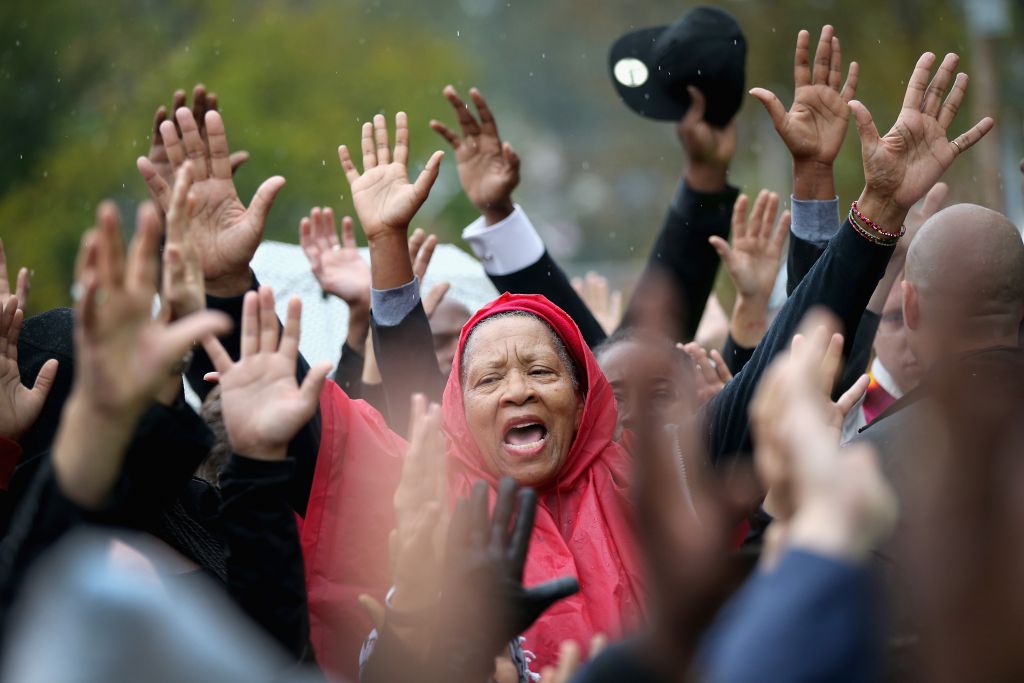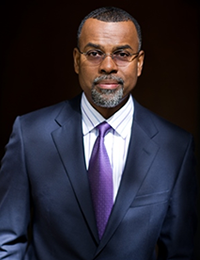Note: This interview is part one of a two-part series. Listen to part two here.

Demonstrators confront police outside the Ferguson police station on October 13, 2014, in Ferguson, Missouri. (Photo by Scott Olson/Getty Images)
I’m holding in my hand what has been called “one of the most daring books of the 21st century,” a “book for the ages,” “bracing,” “unrelenting.” The title is Democracy in Black: How Race Still Enslaves the American Soul, and it breathes with prophetic fire.
Its power comes because the author does not begin with “pristine principles or with assumptions about our inherent goodness.” Rather, its view of democracy, as he writes, “emerges out of an unflinching encounter with lynching trees, prison cells, foreclosed homes, young men and women gunned down by police and places where ‘hope, unborn, had died.’”
Democracy in Black is rich in history and bold in opinion, and inconvenient truths leap from every page. For example, and I’m quoting the book again, “black people must lose their blackness if America is to be transformed. But of course, white people get to stay white.”

The book opens in Ferguson, Missouri, with the author talking to three, dynamic young black women, newly born to activism, and it closes in the intimacy of the reader’s heart, where each of us wrestles with the question of whether we can indeed change the habits of racism and create together a new politics based on a revolution in values.
The author is Eddie Glaude Jr. Glaude was raised in the Deep South, in Moss Point, Mississippi, and still remembers the Ku Klux Klan burning a cross at the fairground. He’s now a professor of religion and African-American studies at Princeton University, where he also chairs the Center for African-American Studies. This is his third book, and he’s a member in good standing of the black establishment, which he rigorously calls to account in Democracy in Black.
Listen to our conversation by clicking on the stream above. You can also download it and take it with you, or click to read the full transcript.



